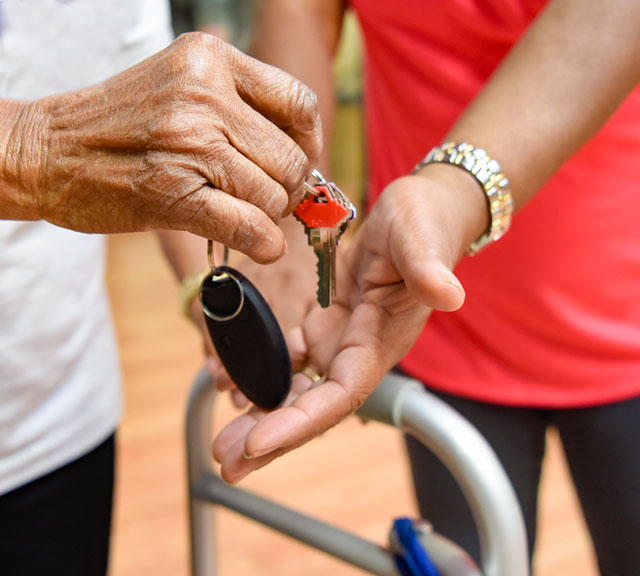Does Mom or Dad Need to Stop Driving?

Find Your Perfect Match
Answer a few questions and we'll provide you with a list of primary care providers that best fit your needs.
More difficult than handing the car keys over to your teenager may be taking the car keys away from an elderly parent. The inability to drive brings with it a lack of freedom, flexibility and independence – things no one wants to face. Having the talk with your elderly parents can be painful but necessary, especially with a parent whose driving skills are no longer safe.
Here are four ideas for taking some of the sting out of this touchy task:
- Start now. Have conversations early and often so they’re aware that you’re paying attention. They won’t be surprised when you periodically bring up the subject.
- Stay focused on safety. It’s not because of their age, it’s because of safety – theirs and others.
- Watch for specific examples. Ride with them so you can provide specific reasons for your concern. Can mom turn her head to look behind as easily as she used to? Is dad’s reaction time slower?
- Enlist the help of others. Ask their doctor, grandchild, religious leader, your spouse or other family members to share their concerns with your parent. You don’t want to gang up on them, but you do want them to know that others share your concern.

Have conversations early and often so they’re aware that you’re paying attention.
In the meantime, there are ways to improve declining skills. Look for a driver safety class, and take the class with your senior. AARP, formerly the American Association of Retired Persons, is just one source.
Check to be sure they are properly positioned in the driver’s seat of their car. Is the seat high enough? Mirrors correctly adjusted? Seatbelt comfortable?
Discuss ideas for modifying their time on the road. If they have trouble at night, suggest they meet friends for lunch instead of dinner. Discourage driving when roads are crowded. Offer to arrange for alternative transportation. Review these tips for driving safely after age 60.
Find Your Perfect Match
Answer a few questions and we'll provide you with a list of primary care providers that best fit your needs.
Source: AARP; Helpguide.org




